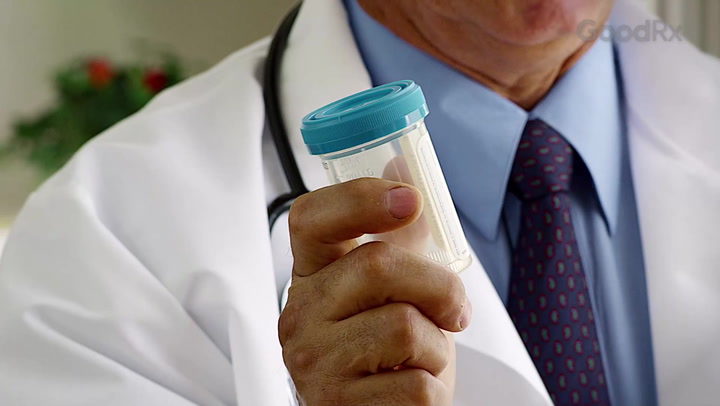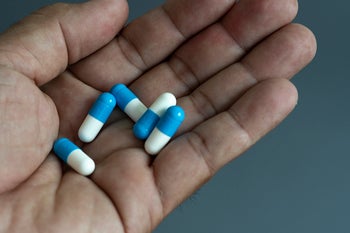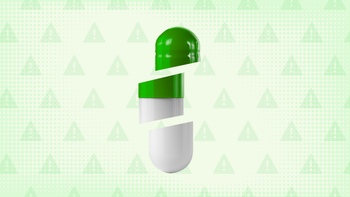
Can You Mix Zoloft and Alcohol? The Risks of Drinking with SSRI Antidepressants
Key takeaways:
Combining alcohol with antidepressants like Zoloft (sertraline) can lead to the worsening of side effects like dizziness and drowsiness. Alcohol can also worsen symptoms of depression.
Alcohol and selective serotonin reuptake inhibitors (SSRIs) like Zoloft interact because they both affect the brain.
There’s not much research on whether you can safely drink small or occasional servings of alcohol while taking SSRIs. So it may be best to avoid the combination. Your healthcare provider can help you weigh your unique risks.

Depression is a common mental health condition. In many cases, antidepressant medications are prescribed to help manage symptoms. And selective serotonin receptor inhibitors (SSRIs) like Zoloft (sertraline) are often a first choice.
But if you’re taking a medication like Zoloft, you may want to think twice before having a few glasses of wine. Alcohol and SSRIs shouldn’t be combined because it can result in potentially severe side effects.
What happens when you drink alcohol on antidepressants?
Drinking alcohol affects the central nervous system, or CNS, which is made up of the brain and spinal cord. This affects how the brain processes information and can lead to the feeling of being drunk. Possible effects of drinking alcohol include drowsiness, slurred speech, and sometimes short-term memory problems.
Search and compare options
SSRIs, including Zoloft, also affect the CNS by boosting levels of a chemical called serotonin. Serotonin is involved in many functions, including mood, sleep, and memory. But shifts in serotonin levels can lead to side effects like nausea and sleep changes.
Because alcohol and SSRIs both affect the CNS, drinking alcohol with this type of antidepressant can worsen the medication’s side effects. Drinking alcohol can also worsen depression symptoms, making it harder for a medication like Zoloft to work effectively.
Can you drink alcohol when you take Zoloft?
The prescribing information for Zoloft says not to drink alcohol while taking it. This is also true for other SSRIs.
As mentioned above, drinking alcohol may make Zoloft’s side effects worse. Drinking alcohol can also make the side effects appear more quickly.
How does alcohol interact with Zoloft?
Combining alcohol and Zoloft can lead to side effects like:
Nausea
Diarrhea
Dry mouth
Drowsiness
Dizziness
Sexual side effects
Read more like this
Explore these related articles, suggested for readers like you.
More serious side effects can also occur when mixing alcohol and Zoloft. One of the major dangers with all SSRIs is the potential for suicidal thoughts, especially in people under 25 years old. The risk of this side effect is also highest shortly after starting or changing the dose of Zoloft. Drinking alcohol impairs judgement, which can be a potentially dangerous situation for a person who is having suicidal thoughts.
If you or someone you know is having thoughts of suicide, you’re not alone, and help is available. Call the National Suicide Prevention Lifeline at 988, or text HOME to 741-741 to reach the Crisis Text Line.
Is having one drink OK when you’re taking Zoloft?
Unfortunately, there isn’t a lot of research available on how one or two drinks will affect you while taking Zoloft or other SSRIs. As discussed earlier, Zoloft’s prescribing information advises avoiding alcohol altogether.
If you have questions about drinking while taking an SSRI, it’s best to discuss them with your healthcare provider. They’ll weigh your unique health history and risks to help you make a safe and healthy choice.
When can you start drinking after you stop taking Zoloft?
It’s important not to skip a dose of Zoloft just so that you can drink alcohol. Missing doses of an SSRI can cause withdrawal symptoms, which can include:
Flu-like symptoms, like muscle aches and tiredness
Dizziness
Headache
Anxiety
Restlessness
Balance issues
Electric shock sensations
Pins and needles
Irritability
Nausea and vomiting
Additionally, Zoloft takes several days to be eliminated from your body. So not taking the medication for just 1 or 2 days will not make drinking alcohol any safer. For the average adult, it takes about 5 to 6 days for Zoloft to clear from the body. But it may take longer for older adults or people with liver problems.
If you are interested in stopping your antidepressant, your healthcare provider can guide you on how to slowly taper off Zoloft to avoid possible withdrawal effects. And if you’re planning to start consuming alcohol, ask them when it’s safe to have a drink.
Is there a safe way to drink while taking antidepressants?
In short, no, there’s not a safe way to drink while taking antidepressants. It can be dangerous to drink alcohol with any antidepressant. And every antidepressant has its own unique risks when it comes to alcohol.
For instance, serotonin and norepinephrine reuptake inhibitors (SNRIs) like Cymbalta (duloxetine) can lead to liver damage when taken with alcohol. Tricyclic antidepressants (TCAs) like amitriptyline carry a risk of blackouts when combined with alcohol. And drinking while taking monoamine oxidase inhibitors (MAOIs) like Azilect (rasagiline) can cause dangerously high blood pressure.
Always discuss drinking alcohol while taking antidepressants with your healthcare provider first. They can tell you if any amount of alcohol is OK for you to take alongside your medication regimen.
When to seek medical help
If you experience any of the following symptoms while taking Zoloft — especially if you’ve been drinking alcohol — seek medical help right away:
Extremely slow heart rate
Feeling like you’re going to pass out
Shallow breathing
Severe confusion
Manic episodes (sudden periods of high energy)
Loss of consciousness
Thoughts of suicide
The bottom line
Mixing selective serotonin reuptake inhibitors (SSRIs) like Zoloft (sertraline) with alcohol can be unsafe because it can lead to excessive or dangerous side effects. Alcohol can also worsen symptoms of depression.
The research isn’t clear on how small amounts of alcohol interact with SSRIs. Overall, it’s best to stay away from drinking alcohol if you’re taking Zoloft.
Why trust our experts?


If you or someone you know struggles with substance misuse, help is available. Call SAMHSA’s National Helpline at 1-800-662-4357 to learn about resources in your area.
References
A-S Medication Solutions. (2023). Sertraline [package insert].
Bruggeman, C., et al. (2022). Selective serotonin reuptake inhibitor toxicity. StatPearls.
Fornaro, M., et al. (2019). The FDA “black box” warning on antidepressant suicide risk in young adults: More harm than benefits?Frontiers in Psychiatry.
Ledden, S., et al. (2022). Alcohol use and its association with suicide attempt, suicidal thoughts and non-suicidal self-harm in two successive, nationally representative English household samples. BJPsych Open.
National Alliance on Mental Illness. (n.d.). Can I drink alcohol while taking antidepressants?
National Center for Biotechnology Information. (2023). Sertraline.
National Institute on Alcohol Abuse and Alcoholism. (n.d.). Older adults.
National Institute on Alcohol Abuse and Alcoholism. (2014). Harmful interactions.
National Institute on Alcohol Abuse and Alcoholism. (2022). Understanding the dangers of alcohol overdose.
Sub Laban, T., et al. (2022). Monoamine oxidase inhibitors (MAOI). StatPearls.





























